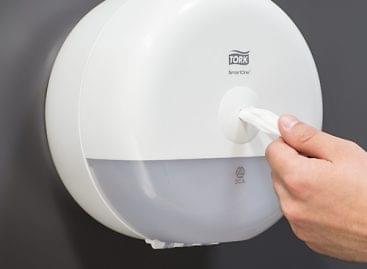Nective’s proprietary systems serve ESG goals
The building automation solutions of the Hungarian-owned hardware and software development technology company Nective Kft. offer significant progress in energy efficiency. At the M3 site of the Gablini Group, where the building automation system of Nective Kft. has already been implemented, energy savings of up to 30% are possible. The showroom also deserves special attention because it is home to the Aston Martin showroom and the car brands Lotus, Omoda, NIO, Kia, INEOS, Jaecoo, Nissan, Peugeot, Hyundai, LEVC. The store’s intelligent control not only reduces operating costs, but also supports sustainability goals along ESG principles. It contributes to the reduction of harmful emissions, supports data-driven decision-making, and employee comfort. The Hungarian SME uses entirely in-house developed technological solutions, thereby ensuring the company’s maximum operational efficiency and full customizability.
Sustainability in building automation
 According to the International Energy Agency, emissions from the construction industry will reach new highs by 2024. Due to stricter climate protection regulations, increasing sustainability expectations and the need for economic efficiency, building automation solutions are gaining an increasingly important role.
According to the International Energy Agency, emissions from the construction industry will reach new highs by 2024. Due to stricter climate protection regulations, increasing sustainability expectations and the need for economic efficiency, building automation solutions are gaining an increasingly important role.
Nective’s system is a powerhouse of building automation
Thanks to Nective’s proprietary technologies, all elements of the system – hardware, software and user interfaces – are manufactured in-house, which guarantees fast communication and smooth support. The advantage of in-house development is that it provides the opportunity to create unique, customized solutions, while the quality of the entire system is also ensured. This approach makes the company a decisive player in building automation.
Scalability and flexibility – Control is the soul of the system
Nective’s system is scalable, so it can be expanded with any number of modules depending on the space and needs, which are capable of controlling more than 20 different functions. Distributed intelligence allows individual modules of the system to operate independently. For example, if a control module, such as the one responsible for controlling lighting, fails, the other modules – such as heating, cooling, ventilation or shutters – continue to operate without interruption, thus ensuring the continuous reliability and flexibility of the system.
The Swiss Army Knife principle applies to device programming
Nective modules do not require a programmer to be commissioned, are easy to install, and their user interface ensures fast and convenient operation. Pre-set functions minimize the risk of human error, saving time and maintenance costs.
Related news
Tork at SIRHA Budapest: hygiene, efficiency and sustainability for the HoReCa sector
🎧 Hallgasd a cikket: Lejátszás Szünet Folytatás Leállítás Nyelv: Auto…
Read more >Essity in EU flagship project PROTEUS to develop bio-based super absorbents from algae
🎧 Hallgasd a cikket: Lejátszás Szünet Folytatás Leállítás Nyelv: Auto…
Read more >Related news
Festival buzz at the 60th anniversary EuroShop trade fair
🎧 Hallgasd a cikket: Lejátszás Szünet Folytatás Leállítás Nyelv: Auto…
Read more >No matter how much you save, food and gadgets always take the money
🎧 Hallgasd a cikket: Lejátszás Szünet Folytatás Leállítás Nyelv: Auto…
Read more >Historic price reduction at ALDI
🎧 Hallgasd a cikket: Lejátszás Szünet Folytatás Leállítás Nyelv: Auto…
Read more >







